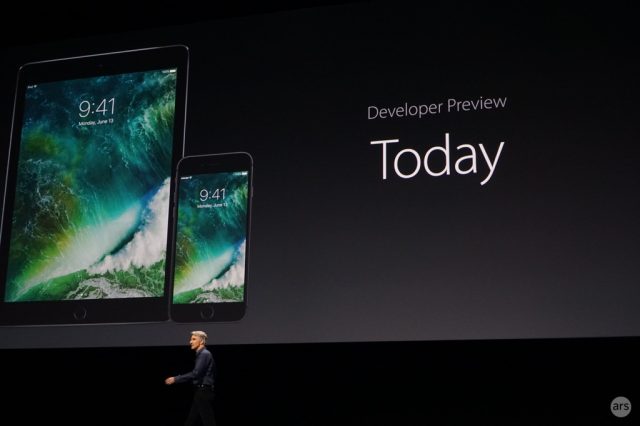
Apple has made encryption and user privacy a pillar of the iOS platform in recent years, but earlier this week, security researchers made a curious discovery: as reported by the MIT Technology Review, the operating system kernel in the iOS 10 betas released at WWDC last week is unencrypted. This makes it much easier to dig into the code and look for security flaws.
There was some speculation as to why Apple had done this or whether the company had even released an unencrypted kernel on purpose. After declining to comment initially, an Apple spokesperson confirmed to TechCrunch that the kernel had been left unencrypted on purpose but that user data continues to be encrypted as it normally is.
“The kernel cache doesn’t contain any user info, and by unencrypting it we’re able to optimize the operating system’s performance without compromising security,” the spokesperson said.
User data in iOS is encrypted with a key derived from the device's unique identifier (UID) and the user's passcode, which makes it very difficult to decrypt user data without that user's passcode. Hardware-enforced delays between passcode guesses and an optional setting that wipes phones after 10 incorrect passcode attempts provide protection from brute-force attacks.
All of this is still true in iOS 10. But an unencrypted kernel could potentially make it easier for people outside Apple to track down and report (or exploit) security flaws like the one the FBI used to break into the iPhone 5C used by the attacker in the San Bernardino case. That said, newer phones with TouchID have additional hardware protection in the form of the Secure Enclave, making it more difficult to get at encrypted user data even if a security flaw is found in the kernel.
reader comments
62